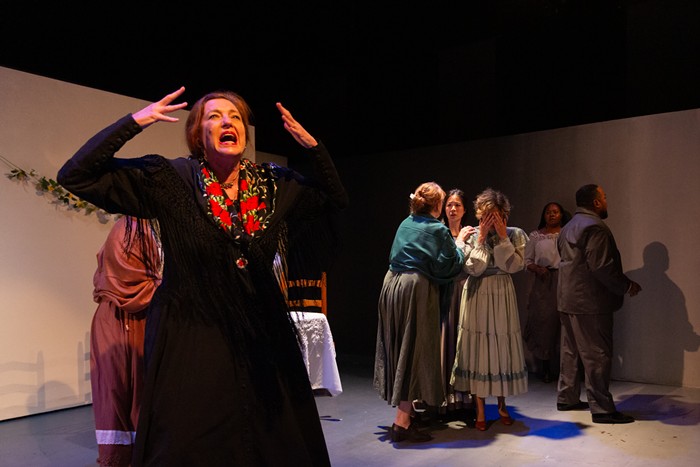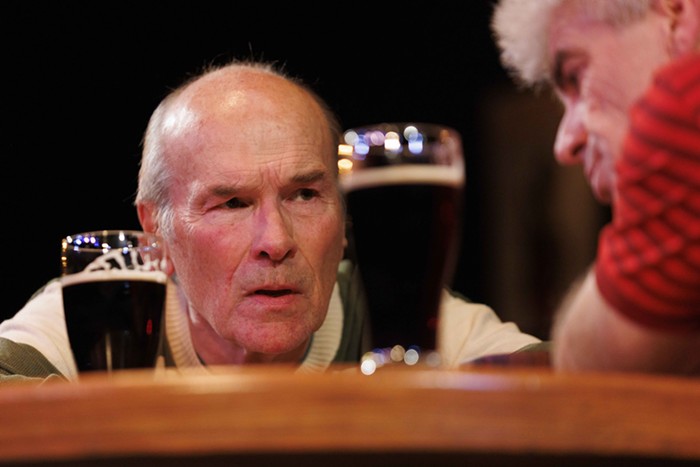On Saturday night, Profile Theatre opened Athol Fugard's Blood Knot, a charged metaphor for apartheid framed as a conflict between two brothers—one light skinned, one dark. It's a good show, and it prompted me to write in the paper this week that I wish there were more shows cast with black actors that weren't specifically about race.
When I think about race and the Portland theater community, I often come back to an interview I did a few years ago with Bobby Bermea, founder of African American theater company BaseRoots.
"THERE WAS A TIME when, if you were a black actor, you always knew you'd be working in February. Somebody, somewhere, is gonna be doing Raisin in the Sun."I'm on the phone with local actor Bobby Bermea, and we're talking about BaseRoots—the new African American theater company that opened its first show, Rocket Man, last weekend. One reason for the company's creation, Bermea explains, is so that black actors don't have to wait for Black History Month to get work, or for some other company to stage an "African American version of Streetcar Named Desire."
"There was a time when if you said 'black,' the stories that would come to mind came from a really limited spectrum. Nowadays the African American experience is really different than it used to be. We have a lot of the same issues that have existed in the past, but we're more than just our issues—we're professional athletes, entertainment magnates, and presidents.
And that's how I have been feeling, lately—like the stories are coming from a limited spectrum. Like there's a lot of historical-racism-as-metaphor going around, and not much at all about racism as it exists today. It's also fairly rare to see black actors in a show that isn't explicitly about racial politics, which seems problematic. (I am making the assumption here that, when it comes to casting a show where the race of the character is not explicit, black and white actors are basically interchangeable. I am neither a director nor a person of color, so please correct me if I'm wrong on that.) So instead of diverse casting or shows about the contemporary black experience, we get an all-black version of Oklahoma! and a slew of shows about The Way Racism Was Back Then. In a more perfect theater world, there'd be room for all of the above.


















